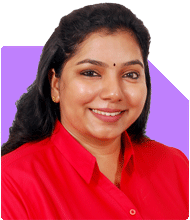Omkeshwar Singh | Answer |Ask -Follow
Head, Rank MF - Answered on Jun 08, 2021

I am a retired professional and for last 10-12 years investment has been done through ARNs advisors in MF scheme Regular Growth options. Total MF investment is in the tune of overINR 1.5 Cr. I have a few SIPs amounting to INR 1.5 lakhs/ month.
Recently some friend told me that investment through DIRECT method results in much better returns than regular through ARNs advisors.
Request pls. advise giving one /two examples like GDFC Top 100 (G): 8 years SIP 10,000, total amount incl Lump sum & SIP Rs 25 lakhs, Axis Long Term EQ (G)..SIP INR 12500, total investment INR 30 lakhs. etc. Shall be grateful for kind advise.
Primary criteria is the selection of good funds and if the same is being done properly with help of mutual funds distributor than it should be continued.
For saving some basis points with direct plan and in wrong selection of funds can do more harm to the overall portfolio
Choice is of Investor, it’s similar to self-medication or doctor’s prescription
You may like to see similar questions and answers below
Omkeshwar Singh | Answer |Ask -Follow
Head, Rank MF - Answered on Oct 27, 2021
Ramalingam Kalirajan |7911 Answers |Ask -Follow
Mutual Funds, Financial Planning Expert - Answered on May 23, 2024
Ramalingam Kalirajan |7911 Answers |Ask -Follow
Mutual Funds, Financial Planning Expert - Answered on May 23, 2024
Dr Dipankar Dutta |751 Answers |Ask -Follow
Tech Careers and Skill Development Expert - Answered on Feb 07, 2025
Pushpa R |50 Answers |Ask -Follow
Yoga, Mindfulness Expert - Answered on Feb 07, 2025
Ramalingam Kalirajan |7911 Answers |Ask -Follow
Mutual Funds, Financial Planning Expert - Answered on Feb 07, 2025
Ramalingam Kalirajan |7911 Answers |Ask -Follow
Mutual Funds, Financial Planning Expert - Answered on Feb 07, 2025
Ramalingam Kalirajan |7911 Answers |Ask -Follow
Mutual Funds, Financial Planning Expert - Answered on Feb 07, 2025
Ramalingam Kalirajan |7911 Answers |Ask -Follow
Mutual Funds, Financial Planning Expert - Answered on Feb 07, 2025
Ramalingam Kalirajan |7911 Answers |Ask -Follow
Mutual Funds, Financial Planning Expert - Answered on Feb 07, 2025
Ramalingam Kalirajan |7911 Answers |Ask -Follow
Mutual Funds, Financial Planning Expert - Answered on Feb 07, 2025
Ravi Mittal |523 Answers |Ask -Follow
Dating, Relationships Expert - Answered on Feb 07, 2025
Ramalingam Kalirajan |7911 Answers |Ask -Follow
Mutual Funds, Financial Planning Expert - Answered on Feb 07, 2025






















